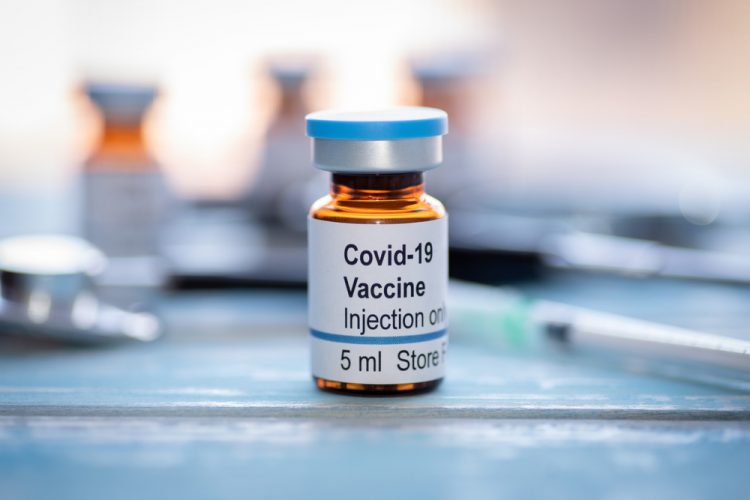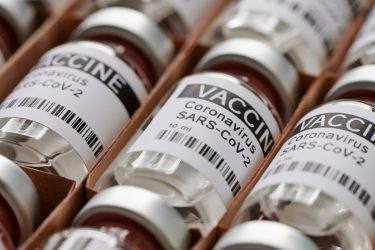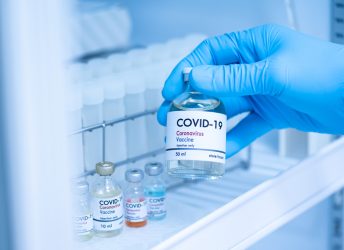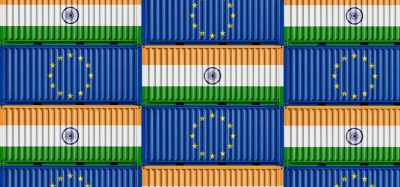COVID-19 vaccine: applying healthcare traceability learnings to ensure safe global distribution
Posted: 14 August 2020 | Grant Courtney (Be4ward) | No comments yet
Grant Courtney explains why traceability is vital for the current pandemic as it would guarantee that COVID-19 vaccines are safe, effective and suitably distributed.


The first results of COVID-19 seroprevalence surveys indicate sufficient levels of herd immunity are a long way off. Given the uncertainty about the duration of such immunity, it is becoming increasingly clear that a vaccine for the novel coronavirus will be key to mitigating the impact of the pandemic on society and the economy. However, the development and manufacture of a prophylactic is just the start of the process. There are further significant challenges in the safe global distribution of this precious commodity.
Vaccine R&D is underway and this gives us a short but vital window to plan for its manufacture and distribution. The global distribution of a COVID-19 vaccine will pose challenges, not least the issue of supply chain security and product verification. Without factoring in these considerations, we open the door to fake vaccines, theft, hijacking and illegal product diversion. For this reason, tight security measures surrounded large shipments of H1N1 vaccines in 2009 and the US Food and Drug Administration (FDA) set up a task force to investigate counterfeit H1N1 treatments.
We have seen a significant upsurge in criminal activity since the start of the COVID-19 outbreak with fake masks and therapeutics, among other counterfeit medical products. In March and April, Homeland Security in the US identified 19,000 suspect COVID-19-related domain names and seized over $3.2 million linked to 494 shipments of “mislabeled, fraudulent, unauthorised or prohibited COVID-19 test kits, treatment kits, homeopathic remedies, purported antiviral products and PPE,” which led to 11 arrests. More than 6.5 million “products with inaccurate claims” have been flagged by online retail giant Amazon.
Without intervention, we have every reason to expect these same illegal activities to significantly impact the safe distribution of a vaccine. Counterfeit medication is not exclusive to the dark web and underground marketplaces; falsified product has found its way into all corners of the healthcare supply chain and unknowingly been distributed by legitimate healthcare providers. At best, a fake vaccine can cause a false belief in an individual’s protection from the virus, at worst falsified medication can cause death. There are even wider-reaching impacts of false vaccination on the community, creating new outbreaks in areas assumed to be vaccinated resulting in repercussions on social and economic welfare. The impact of this on a global scale serves to further highlight that our ability to guarantee every COVID-19 vaccine is legitimate and from a controlled supply chain will be crucial to tackling this virus.


The distribution of the vaccine globally presents a challenge and the fewer the number of producers, the greater this challenge. Some of the current trials use RNA-based vaccines, which have the potential for more regionalised manufacture compared to more traditional vaccines. Irrespective of the type of vaccine technology used, cross border and regional distribution will be necessary. What we need to keep in mind is that the greater the number of countries involved in the supply chain, the more complex the management and the greater the risks.
Some of the most knowledgeable experts in the field are already stressing the challenge of distributing a vaccine globally. “The resulting distribution will be truly global in scale, requiring a monumental logistical effort if all countries are to benefit from the vaccines,” wrote Lee Hampton, the head of vaccine safety and vaccine preventable disease surveillance at the Gavi Alliance. Meredith Wadman, a reporter at Science Magazine and published author of The Vaccine Race, described the challenges of global distribution of a COVID-19 vaccine in an interview: “It is not going to be simple to get this vaccine distributed. You look at developing countries that just scarcely have the infrastructure to get our existing vaccines to their population. And you just have to know that this highly infectious disease, if it [the vaccine] does not reach them, will continue to circulate.”
…the greater the number of countries involved in the supply chain, the more complex the management”
Vaccinating the population of low-to-middle income countries (LMICs) could be further complicated by illegal diversion of vaccine shipments back to countries in the developed world. Identifying and tracking the path of a COVID-19 vaccine will be of great importance. This will make supply chain security vital to address as we plan how to distribute the product.
Traceability has been utilised in many countries to address supply chain security and help tackle the issue of counterfeit product. In Europe last year, the Falsified Medicines Directive (FMD) initiated an obligation to validate each pack of medicines sold in the EU’s 28 member states against national and European databases. Similar traceability systems have also been successfully established in Turkey, Argentina and South Korea. Healthcare traceability using serialisation first started over 25 years ago, when regulators put labels on packs to facilitate payment and reimbursement. Track and trace in healthcare started to emerge around 15 years ago with the FDA investigating which technologies should be used and several countries starting to develop legislation. Healthcare is therefore widely acknowledged as a key industry in traceability, with its finely honed techniques being replicated across other high-value goods markets such as food and wine.
What are the lessons we can learn from existing traceability implementations in healthcare?
Given the challenge of distribution, we already know that products will be shared across countries within a region; therefore, solutions must be global. The way to achieve this is to base traceability solutions on international global standards. Proven methodologies already exist, allowing for the harmonisation of these features, as well as data sharing.


The other approach is to implement a traceability system that can operate across different countries. Most current healthcare traceability systems are specific to an individual country, which will not work for the distribution of products across regions such as continents. We must break the dependency on having to know where a product is going to be consumed at the point of manufacture and instead allow traceability data to be published to a temporary location and drawn on when needed by regional or national systems.
Whichever solution is chosen, solutions which are operable with mobile technology will be central to a COVID-19 vaccine traceability. This will allow deployment where physical infrastructure is not available. Countries not yet incorporated in a traceability system will need a mobile and cloud-based infrastructure. Private actors can be relied on to provide technological solutions to adapt mobile technologies.
In any case, we must avoid proprietary closed solutions; our focus must be on open, universal, collaborative solutions.
The worth of a successful vaccine reaches far beyond its financial value”
In addition to product security, traceability can also be used to provide information on the physical flow of products, product condition monitoring and real time demand information, among others. This is all critical data when managing temperature sensitive products on a global scale.
Apps that facilitate services like contact tracing, pharmacovigilance and vaccination certifications could use the barcode on the vaccine pack to capture the product code, serial number, as well as batch and expiry data. This way there is a record that an individual has been vaccinated with a verified pack and the batch and expiry data is available for aspects such as recall management and pharmacovigilance reporting.
Several serialisation pilot projects have been launched in LMICs by international aid agencies, notably through USAID’s DELIVER Project in Nigeria, Egypt, Rwanda and Ethiopia. LMICs now need further support to ensure effective traceability solutions can be put in place to support the distribution of a COVID-19 vaccine. We have the opportunity to use this as a learning experience, to develop solutions that we could then leverage.


Pharmaceutical serialisation has made huge steps in the last two decades and now is the time for the rest of the world to utilise these learnings and adopt serialisation to this crucial global effort. If successful, a global COVID-19 vaccine traceability system would leave a foundation for future pharmaceutical solutions and a positive legacy from the COVID-19 crisis.
About the author
Grant Courtney is a leading healthcare industry consultant and industry-recognised expert adviser on digital brand protection and product traceability. He examines the challenges we face ensuring the safe, global distribution of a legitimate COVID-19 vaccine and looks to our learnings throughout 20 plus years of developing healthcare traceability to highlight the key lessons we must apply.
Related topics
Distribution & Logistics, Drug Counterfeiting, Drug Safety, Drug Supply Chain, Supply Chain, Track and Trace, Vaccine Technology, Vaccines, Viruses
Related organisations
Amazon, GAVI Alliance, Science Magazine, US Food and Drug Administration (FDA), US Homeland Security, USAID








